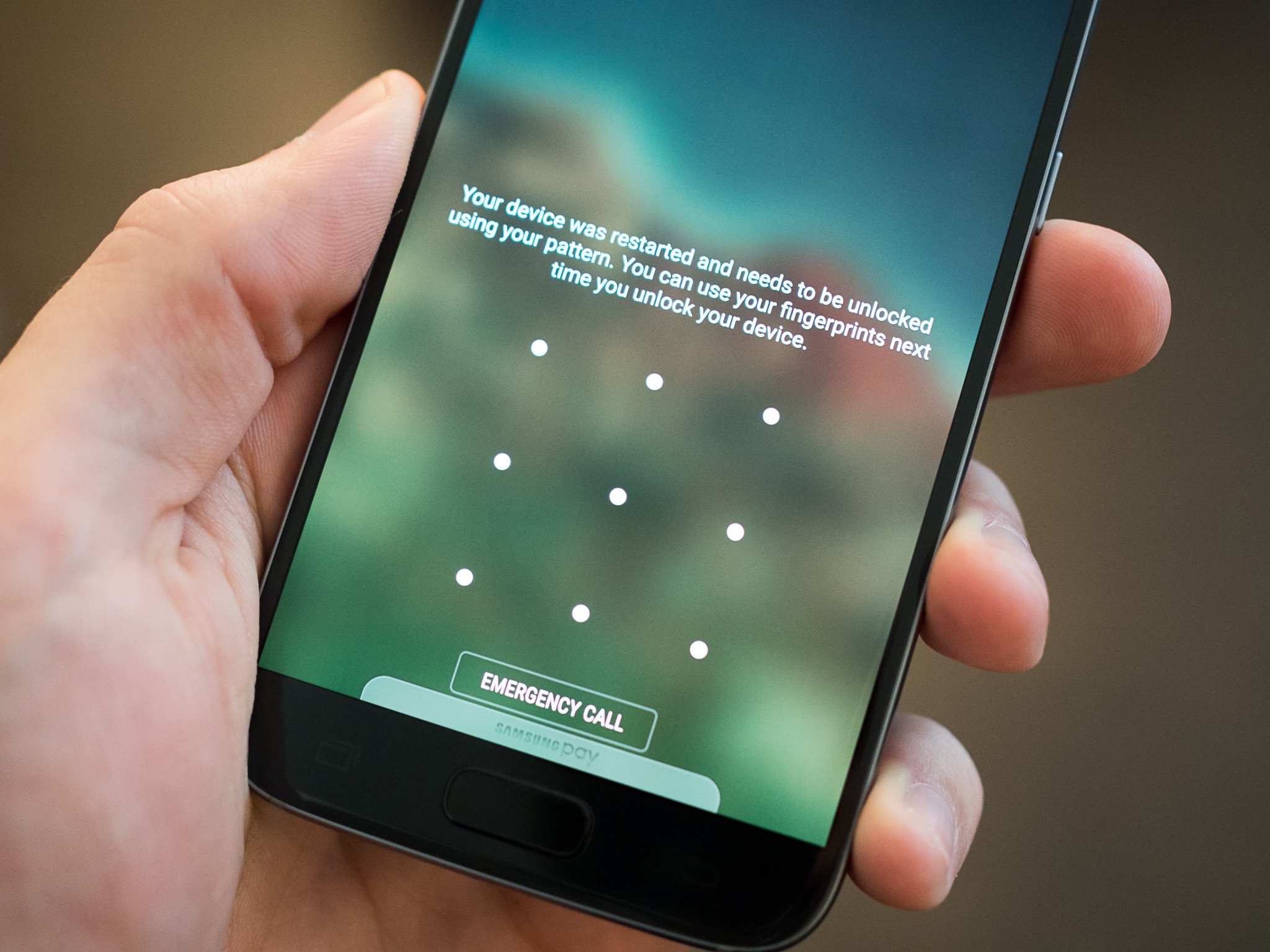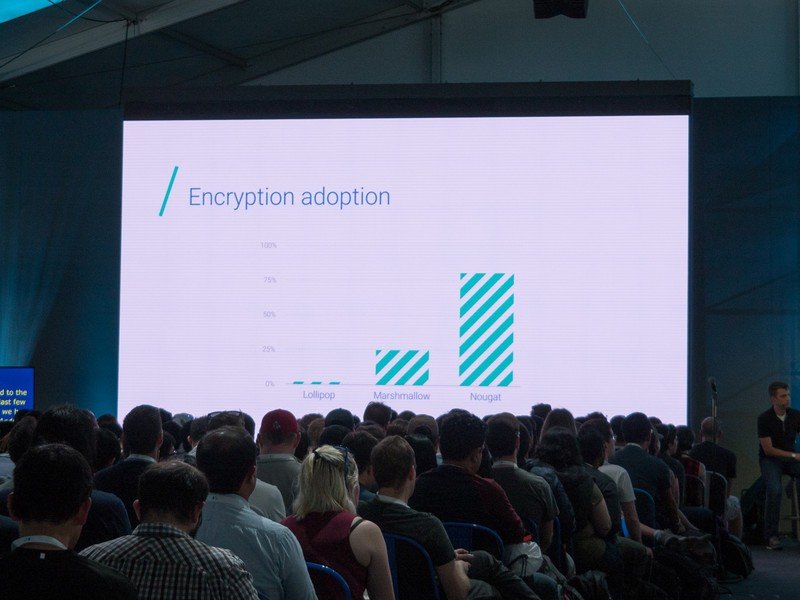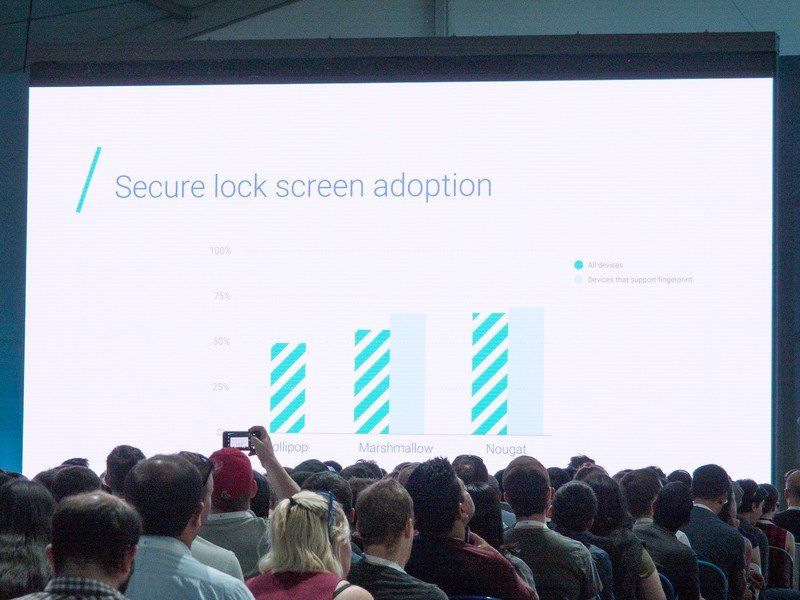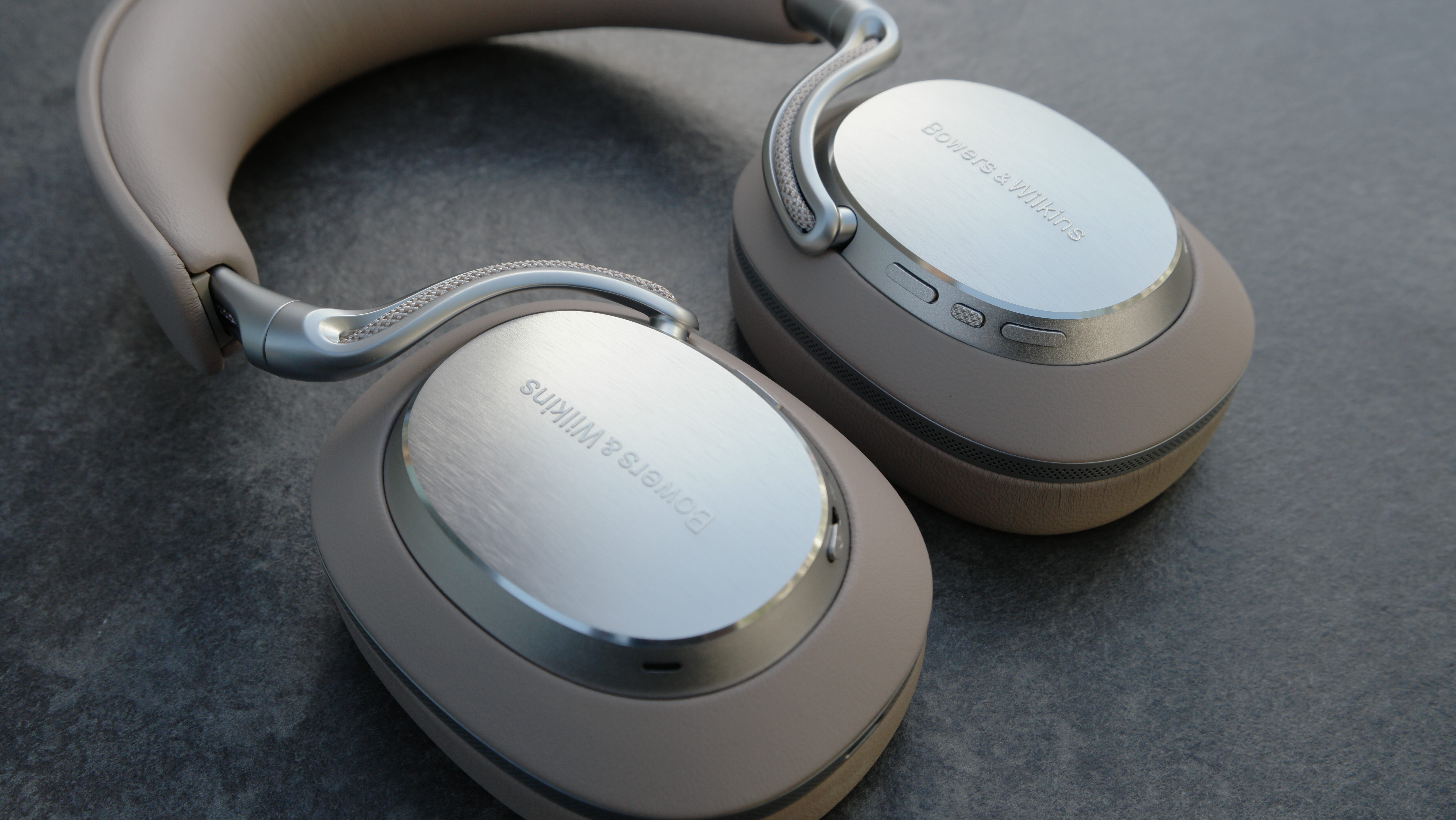More Android phones are using encryption and lock screen security than ever before

Get the latest news from Android Central, your trusted companion in the world of Android
You are now subscribed
Your newsletter sign-up was successful
We like to harp on security here from time to time, but it's for good reason. Many often have a false sense of just how secure their private data is on their devices — that is, if they're thinking about it at all. Your average smartphone user just wants to access the apps and people they care about, and not worry about security.
That's why it was extremely encouraging to hear some of the security metrics announced at Google I/O 2017. For devices running Android Nougat, roughly 80% of users are running them fully encrypted. At the same time, about 70% of Nougat devices are using a secure lock screen of some form.
That 80% encryption number isn't amazingly surprising when you remember that Nougat has full-device encryption turned on by default, but that number also includes devices that were upgraded from Marshmallow, which didn't have default encryption. Devices running on Marshmallow have a device encryption rate of just 25%, though, so this is a massive improvement. And the best part about Google's insistence on default encryption is that eventually older devices will be replaced by those running Nougat or later out of the box, meaning this encryption rate could get very close to 100%.
The default settings are immensely important.
Full-device encryption is particularly effective when paired with a secure lock screen, and Google's metrics showing 70% adoption in this regard definitely needs some work. It's a small increase from the roughly 60% secure lock screen rate of Marshmallow phones but a decent jump from the sub-50% rate of devices running Lollipop. The most interesting aspect of these numbers to my eyes is that having a fingerprint sensor on the device doesn't signal a very large increase in adoption — perhaps just a five percentage point jump. On one hand it's great to see people using secured lock screens even when they don't have something as convenient as a fingerprint sensor, but then again I'd expect the simplicity of that sensor to help adoption more than these numbers show.
The trend is heading in the right direction in both of these metrics, and that's a great sign despite the fact that secure lock screens show a slower growth rate. The closer we get both of these numbers to 100%, the better.
Get the latest news from Android Central, your trusted companion in the world of Android

Andrew was an Executive Editor, U.S. at Android Central between 2012 and 2020.


